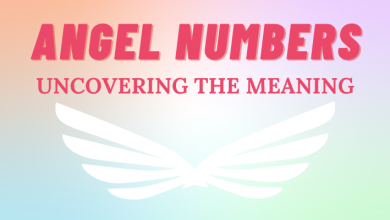Are Dreams Your Thoughts?
Dreams are a fascinating aspect of human life that has been studied for centuries. Many people believe that dreams are just random images and sensations that come to mind while we sleep. Others believe that dreams are a reflection of our subconscious mind, and some people believe that dreams can even be a glimpse into the future. But what are dreams? Are they just thoughts that our minds produce while we sleep? In this article, we will explore the topic of whether or not dreams are your thoughts.
What are Dreams?
Dreams have always been a mysterious and fascinating subject. Throughout history, people have tried to understand the meaning and purpose of their dreams. In this article, we will explore the topic of whether or not dreams are your thoughts.
The Definition of Dreams
A dream is a series of images, thoughts, and sensations that occur in the mind during sleep. Dreams can be simple or complex, vivid or dull, and they can be remembered or forgotten upon waking up.
Theories of Dreaming
There are several theories of dreaming that have been proposed by researchers over the years. One theory is that dreams are a way for our brains to process and make sense of the information that we have accumulated throughout the day. Another theory is that dreams are a way for our brains to prepare for future events or to deal with unresolved emotional issues.
The Brain and Dreams
The brain plays a crucial role in the formation of dreams. During sleep, the brain produces different types of brain waves, which correspond to different stages of sleep. The brain also produces neurotransmitters that can influence the content of our dreams.
Sleep Stages
Sleep is divided into several stages, including NREM (non-rapid eye movement) and REM (rapid eye movement). Dreams typically occur during the REM stage of sleep, which is characterized by rapid eye movements, muscle paralysis, and vivid dreams.
Are Dreams Your Thoughts?
While it is true that dreams are a product of our minds, it is not accurate to say that they are our thoughts. Dreams are a complex and multifaceted phenomenon that involves the interaction of different parts of the brain.
The Interpretation of Dreams
Dreams can be interpreted in many different ways. Some people believe that dreams are a reflection of our subconscious mind, while others believe that they are a glimpse into the future or a message from a higher power.
The Purpose of Dreams
The purpose of dreams is still not fully understood, but researchers have proposed several theories. Some believe that dreams serve as a way for our brains to process and consolidate memories, while others believe that dreams are a way for our brains to prepare for future events.
Common Dream Themes
There are several common themes that appear in dreams, such as falling, flying, being chased, or being naked in public. These themes are thought to be related to common human experiences and emotions.
Lucid Dreaming
Lucid dreaming is a state in which the dreamer is aware that they are dreaming and can control the content of their dreams. Lucid dreaming is a fascinating phenomenon that has been studied by researchers for many years.
Dreaming and Mental Health
Dreaming is closely related to mental health. Sleep disorders and nightmares can be indicative of underlying mental health issues, and many therapies for mental health problems involve working with a person’s dreams to better understand their psyche.
Nightmares and Sleep Disorders
Nightmares and sleep disorders can be very distressing for individuals who experience them. Nightmares are vivid, frightening dreams that can wake a person up in a state of panic or fear. Sleep disorders, such as sleepwalking or insomnia, can also be related to dreaming and can affect a person’s quality of life.
Tips for Better Dreaming
There are several tips that can help improve the quality of your dreams. These include keeping a dream journal, getting enough sleep, practicing relaxation techniques before bed, and avoiding alcohol and drugs that can interfere with sleep.
Conclusion
In conclusion, dreams are not simply thoughts that our minds produce while we sleep. Dreams are a complex and multifaceted phenomenon that involves the interaction of different parts of the brain. While we still don’t fully understand the purpose and meaning of dreams, they are an important aspect of our mental and emotional well-being.
FAQs
Can dreams predict the future?
There is no scientific evidence to support the idea that dreams can predict the future.
Can dreams reveal hidden emotions?
Yes, dreams can be a reflection of our subconscious mind and can reveal hidden emotions or thoughts.
Is it possible to control your dreams?
Yes, it is possible to control your dreams through a technique called lucid dreaming.
Why do we forget our dreams?
We forget our dreams because the brain processes and consolidates memories during sleep, which can interfere with the formation of dream memories.
Are nightmares a sign of mental illness?
Nightmares can be a sign of underlying mental health issues, but they can also be a normal part of the dreaming process. It’s important to seek help if nightmares are causing distress or interfering with daily life.
What to read next:
Source: https://numerologybox.com
Category: Angel Number




